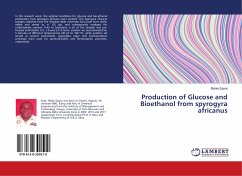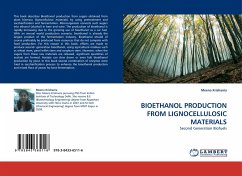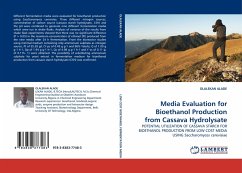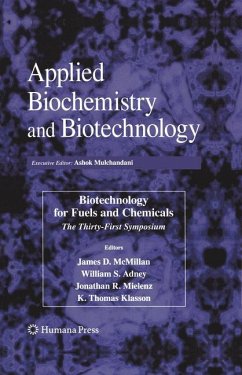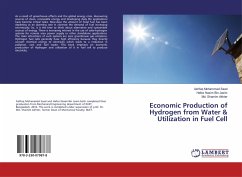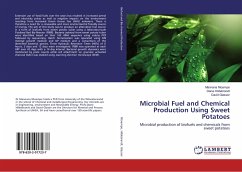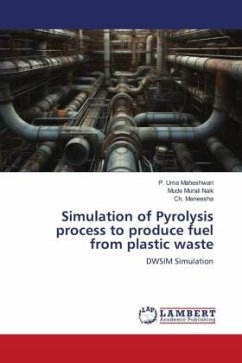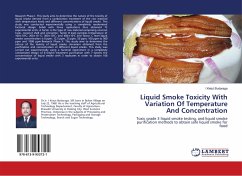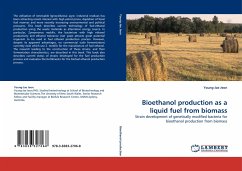
Bioethanol production as a liquid fuel from biomass
Strain development of genetically modified bacteria for bioethanol production from biomass
Versandkostenfrei!
Versandfertig in 6-10 Tagen
52,99 €
inkl. MwSt.

PAYBACK Punkte
26 °P sammeln!
The utilisation of renewable lignocellulosic agro- industrial residues has been attracting recent interest with high petrol prices, depletion of fossil fuel reserves and more recently increasing environmental and political pressures. This book describes current technology of fuel-ethanol production using the waste materials as alternative energy source. In particular, Zymomonas mobilis, the bacterium with high ethanol productivity and ethanol tolerance over yeast attracts great potential organism to be used in fuel ethanol production process. However, despite its apparent advantages, no commer...
The utilisation of renewable lignocellulosic agro- industrial residues has been attracting recent interest with high petrol prices, depletion of fossil fuel reserves and more recently increasing environmental and political pressures. This book describes current technology of fuel-ethanol production using the waste materials as alternative energy source. In particular, Zymomonas mobilis, the bacterium with high ethanol productivity and ethanol tolerance over yeast attracts great potential organism to be used in fuel ethanol production process. However, despite its apparent advantages, no commercial scale fermentations currently exist which use Z. mobilis for the manufacture of fuel ethanol. The research leading to the construction of these strains, and their fermentation characteristics, are described in this book. This book also describes current status of strains developed for the fuel production process and evaluates the bottlenecks for the biofuel ethanol production process.




